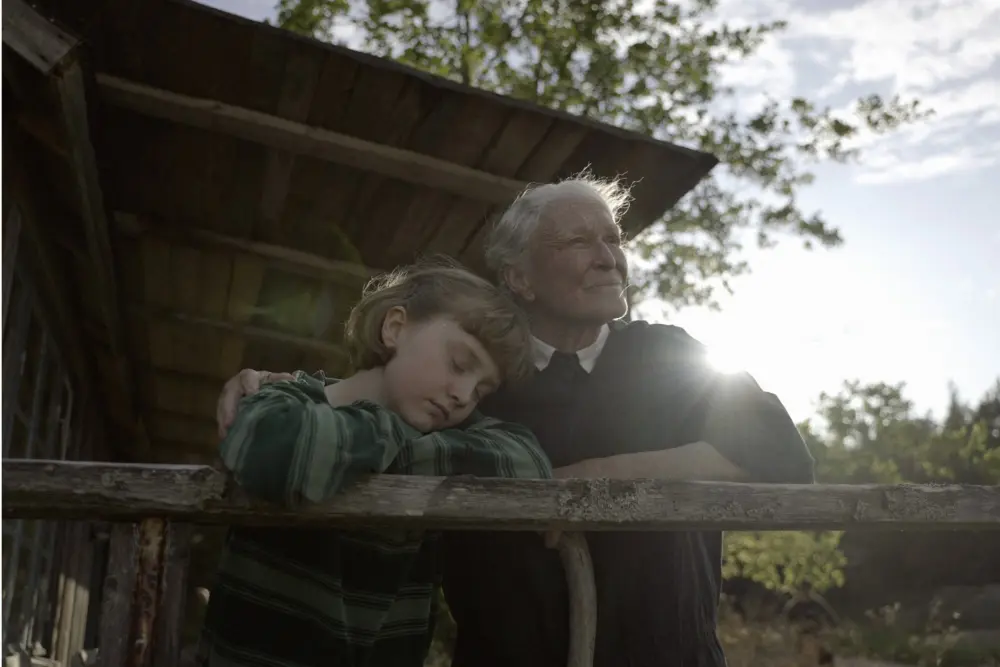Glenn Close shines in emotional adaptation of ‘The Summer Book’
Reflecting memories and idyllic scenery
Tove Jansson’s 1972 novel, “The Summer Book”, while not a memoir, serves as a profound memory piece. It weaves a slender narrative of unspoken grief and healing, enriched by Jansson’s palpable connection to a remote Gulf of Finland island. This island, where Jansson herself maintained a rustic holiday house, forms the heart of the story.
Translating this well-loved book to the screen after half a century is no small feat. The novel’s subtextual depth and minimalist storytelling present challenges that require a deft touch. In his fourth feature, American filmmaker Charlie McDowell undertakes this task with commendable respect, capturing some of the wistful warmth of Jansson’s writing. However, he stops short of fully embracing its unassuming poetic depths.
A small yet powerful cast
Glenn Close anchors the film as a weary grandmother, radiating quiet benevolence. Her performance stands out as the principal draw of “The Summer Book” as it premiered at the London Film Festival. This film, devoid of the usual cinematic bells and whistles, recalls the simplicity of its source material.
The most dramatic peak in Robert Jones’s low-key adaptation is a late-summer thunderstorm that menaces briefly but causes no ultimate harm. Such reserved storytelling might frustrate some viewers, but fans of Jansson, the Finnish author famed for her Moomins books, will appreciate the film’s fidelity to her delicate touch.
A journey into a serene world
The film begins by offering viewers a passage into another world, where time moves slower, and the days are longer. We see the prow of a small wooden motorboat cutting through glinting waters, leaving urban reality far behind. Observing every moment is nine-year-old Sophia (played by newcomer Emily Matthews). She is a sensitive, imaginative child, curious about her changing surroundings.
Accompanied by her father (Anders Danielsen Lie) and her grandmother (Close), Sophia heads for a secluded family cottage where she has spent every summer of her short life. However, this year’s change feels daunting without her mother, whose absence is conspicuous and heavily felt—nobody knows exactly how to address it.
Navigating grief and family bonds
Sophia’s father, a soft-spoken illustrator, buries himself in his work, distancing himself emotionally. This distancing causes Sophia to fear that he no longer loves her. As he retreats, Sophia’s grandmother steps in to fill the emotional void. She devises endless activities to keep Sophia’s mind engaged and serves as a constant conversational partner, ready with answers to questions ranging from trivial to profound.
There are no phones or computers here, highlighting the film’s analog period. The family’s nubbly Nordic knitwear, practical even on summer evenings, feels like a constant presence. Close plays the pragmatic, self-sufficient grandmother with finesse, avoiding sentimental excess while maintaining a genuine affection for Sophia.
Quiet moments and unsettling reflections
Glenn Close delivers beautifully in moments of introspection, whether smoking hand-rolled cigarettes on the porch at dusk or hobbling across the landscape she once roamed freely. Her character’s face silently reveals darker anxieties, perhaps fearing for her family’s future when only two remain.
As the summer progresses, raw wounds begin to heal. Father and daughter start to see each other anew, although the film avoids grand gestures of reconciliation. Anders Danielsen Lie gets less screen time compared to his female co-stars, but his reserved decency adds emotional depth to the narrative.
A departure in tone and style
McDowell’s adaptation is a notable departure from his earlier works, including the Netflix neo-noir “Windfall.” While the film does not always capture the spiritual echoes of Jansson’s haunting book, it excels in portraying the physical beauty of its setting. A newly planted poplar tree amid the rocks, a gesture of faith in the future, stands out as a symbol of hope.
Cinematographer Sturla Brandth Grøvlen captures the craggly pebble beaches, pine-needle carpets, and stonewashed skies with exquisite attention to light and texture. His compositions focus on tactile details that evoke lifelong memories rather than mere postcard perfection.
“The Summer Book” offers a visually captivating and emotionally resonant adaptation of Jansson’s novel, inviting viewers to immerse themselves in its serene yet complex world. For ongoing updates on similar projects and cinematic insights, stay connected with our platform and share your thoughts on social media.

 Italian
Italian







